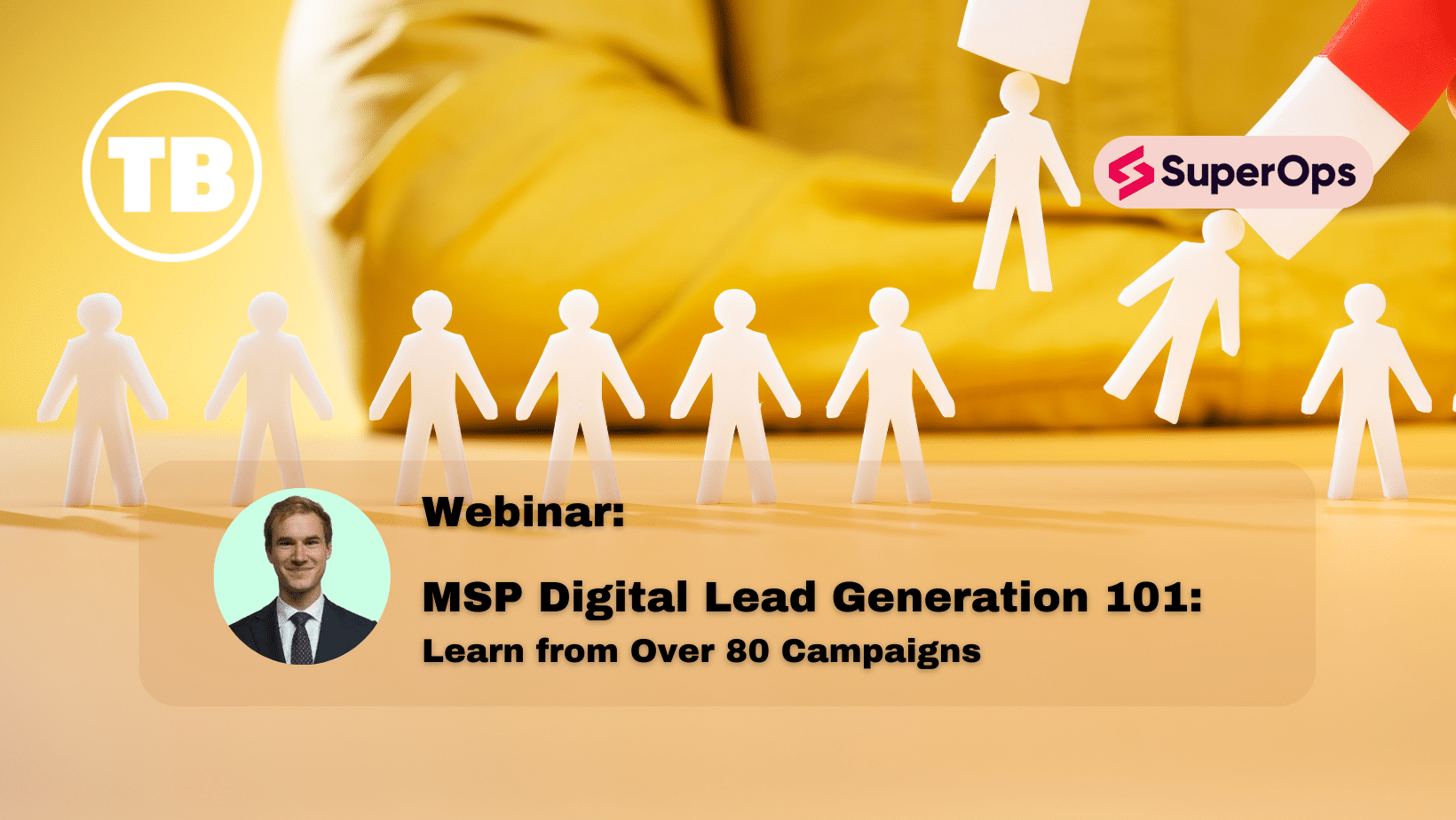
Quote requests from Hotmail and Gmail addresses
So it was with interest that I spoke to the owner of a medium sized MSP recently who said that their policy was to out of hand dismissed any request for information they had from prospects with a “free” e-mail address – Googlemail, Hotmail, Yahoomail, etc. These e-mails – typically with requests for license pricing information – often didn’t include a business name nor telephone number to respond to.
In effect, they were “quote and hope” sales requests.
I can understand the MSP’s thinking here. If a prospect doesn’t have a legitimate e-mail address, nor any way of getting a telephone number to call them, it’s hard to take their enquiry seriously.
Measuring the response to “Quote and Hope” sales requests
But the MSP owner I spoke to went on to say that their policy had recently changed. During a quiet period in the office, the owner had received a license quotation request from a Gmail e-mail address with no telephone number or business name, but rather than delete it – he asked a junior member of staff to respond to it.
Days later, the quote came good and the MSP ended up selling a large license deal which they made an excellent mark-up from.
The MSP owner shared with me that he believed the quotation request had come from a local business owner who simply wanted to shop on price. By sending an e-mail from a throwaway Google e-mail address with no telephone number or business name attached they were avoiding any sales telephone calls, avoiding being added to a mailing list, and avoiding any of what they perceived to be “hassle”. They wanted the price, end of story.
What can be measured, can be managed
This story made me think about how MSP’s approach such enquiries. In this example, the MSP was more than compensated for the time it took to respond to the e-mail. Based on the mark-up they made on the licensing deal, even if only 1 in 10 of these types of e-mails end up in a sale, it still makes responding to the other 9 quote requests worthwhile.
So why I still stand by my statement that MSP’s shouldn’t write long, complicated sales proposals without a very strong reason why, it’s worth re-visiting those elements of your sales process that can be automated or systemised and monitored and measured for effectiveness to the point where you know it’s worthwhile to undertake them.
Once you start doing this, it’s no longer a case of “quote and hope” – instead you’re effectively using your time.















Comments
8 thoughts on Should your business respond to “Quote and Hope” sales requests?
DEREK SMITH
24TH APRIL 2012 12:27:05
There's an old saying" if you didn't write the RFP/RFQ, don't respond to it". Most companies already have a vendor in mind, and are just trolling for information to use to get either free consulting or ammunition for a price negotiation. Plus, the old procurement rule to have at least three quotes. Keep that in mind when investing precious sales resources an the "Quote and Hope" process. Though every once in a while you might find a diamond in the rough.
JAKOB THUSGAARD
25TH APRIL 2012 07:50:00
Isn't the problem with this, though, that unless you speak to the customer and understand what they need and that the request is real, that there's a real need and a decision making process behind the request - unless you have all of those, quoting is still a quote & hope game!? It would surprise me if 1 in 10 would be turned into an order. I think 1 in 100 is more likely if at all achievable - depending on the business and the customers it caters to. With limited time available isn't it more beneficial to spend good sales time speaking to prospects and existing customers who are willing to have a dialogue with you about their needs & pains. That way you get to spend less time hoping, more time discussing real business, and have less doubts about where your business is going to end... In short: No way you should respond to quote and hope mails. It's: - a waste of time that could be allocated more efficiently; - not going to get you where you need/want to be; - no fun (it's much more fun to discuss REAL business with REAL customers) !
RICHARD TUBB
25TH APRIL 2012 08:18:59
Jakob - I put this blog post out there to get people's feelings on the subject. As I mentioned in my blog post, I'd tend to agree with you that responding to "Quote and Hope" requests is a waste of time. But clearly in the story of the MSP in my post, doing the wrong thing proved right!
RICHARD TUBB
25TH APRIL 2012 08:22:54
Derek - I like that saying! Giving away free Consulting is a huge problem for most MSP's I speak to. They live with the fear that if they don't quote for the work, they won't win the work. A true statement, but in many cases they were never going to win the work anyway for a variety of reasons, so have just wasted time chasing an impossible win. I wonder that if you can minimise (or virtually eliminate) the time spent dealing with "quote and hope" requests such as those mentioned in the story above, whether it's worthwhile doing them though? My gut feeling is no, but the contrary tale I've relayed above tells me otherwise.
CRAIG SHARP
14TH MAY 2012 15:31:37
I think this is a very difficult topic but I 'kinda' agree. I hate writing sales proposals only to then email off the PDF and find the recipient doesn't want to talk to you............. clearly the PDF had too many zero's on the price ! However, I think an initial meeting is important after any enquiry to ascertain the nature of the client and their needs. At that meeting you can see if they need a man with a screwdriver (http://j.mp/xPb1u7) or maybe more and at that stage you can decide if that's the right client for you.
RICHARD TUBB
14TH MAY 2012 16:21:33
Craig - it's certainly an interesting topic. I'd state that you should never e-mail a proposal off - but a quote? Maybe. I differentiate between proposals and quotes though. Quotes are typically commodity items, low complexity and price based. Proposals are generally for projects, higher complexity with multiple aspects. The two are different in my opinion.
PAUL
7TH MAY 2013 11:32:58
I will now not respond to these anonymous emails. we get them occasionally and 9 times out of 10 it's other IT companies trying to find out how much we charge! If they bothered to take me out for a coffee. i'd tell them :) One particular emailer didn't cover his tracks very well and I managed to track him down. Gave him a polite call saying that I was just giving him a call to discuss his email to me, he went very sheepish and surprisingly, something important had come up and he had to go! :) The example in the blog is fine if all you do is sell stuff off the shelf but I fail to see how someone can judge the quality of service an IT company can provide just by getting a price.
RICHARD TUBB
7TH MAY 2013 16:37:39
Paul - I hear you, and I understand your stance. Good to hear you're open to sharing knowledge with your peers who ask for your advice. A rising tide lifts all boats.